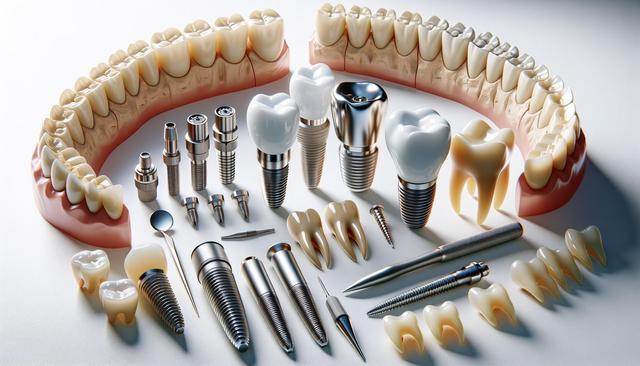Understanding the Need for Tooth Replacement
Losing a tooth, whether due to injury, decay, or age, can have a significant effect on both oral health and self-confidence. Missing teeth not only affect the aesthetics of a smile but can also lead to complications such as shifting of adjacent teeth, bone loss in the jaw, and difficulty chewing or speaking. Fortunately, advances in dental technology have made tooth replacement more accessible and effective than ever. Understanding the reasons for replacing missing teeth can help individuals make informed decisions about their oral health. A complete set of teeth contributes to:
- Proper alignment and function of the bite
- Preservation of facial structure
- Improved speech and chewing ability
- Enhanced self-esteem and social confidence
Seeking timely tooth replacement is a proactive step toward maintaining oral health and overall well-being.
Dental Implants: A Long-Term Solution
Among the most durable and popular modern options, dental implants offer a highly functional and natural-looking solution. Dental implants involve the surgical placement of a titanium post into the jawbone, which serves as an artificial root. Once the area heals, a crown is attached, replicating the look and feel of a real tooth. Dental implants are well-regarded for their longevity and stability, particularly because they integrate with the bone. Key benefits of dental implants include:
- Support for surrounding teeth by preventing shifting
- Stimulation of bone growth, preserving jaw structure
- Natural appearance and feel
- High success rate and durability with proper care
Though initial costs and treatment times may be higher compared to other options, many patients find the long-term advantages of dental implants to be worth the investment.
Fixed Bridges: Filling Gaps with Stability
Fixed bridges are another commonly used method for tooth replacement, especially when one or more adjacent teeth are missing. A bridge consists of one or more artificial teeth anchored by crowns placed on the natural teeth or implants next to the gap. Fixed bridges are a practical choice that can restore both function and appearance. Some advantages of bridges include:
- Quick restoration process compared to implants
- Stable and durable when properly maintained
- Customized to match the color and shape of natural teeth
However, it’s important to note that the preparation of adjacent teeth is required, which may involve reshaping healthy teeth to accommodate the crowns. For this reason, bridges are most suitable when the neighboring teeth already require crowns or restorations.
Removable Dentures: Flexible and Cost-Effective
Removable dentures have evolved significantly in both comfort and appearance. They are a viable solution for individuals missing several or all of their teeth. Dentures can be partial, replacing a few teeth, or full, replacing an entire arch. Modern materials and designs have improved their fit and aesthetics, making them a more appealing option than in the past. Benefits of removable dentures include:
- Lower upfront cost compared to implants or bridges
- Non-invasive and suitable for patients with limited bone structure
- Ease of adjustment and maintenance
While they may lack the stability of fixed options, the convenience and affordability make dentures a preferred choice for many individuals. Regular cleaning and occasional adjustments are necessary to maintain comfort and functionality.
Choosing the Right Option for Your Needs
Deciding on a tooth replacement option depends on several factors, including the number of missing teeth, oral health condition, budget, and personal preferences. A consultation with a qualified dental professional is essential to assess the suitability of each option. The decision-making process often involves evaluating:
- Bone density and gum health
- Long-term maintenance and care requirements
- Cost and insurance coverage
- Desired aesthetics and functionality
Patients are encouraged to consider not only the immediate benefits but also the long-term implications of each treatment. In many cases, combining different solutions, such as implants supporting removable dentures, can offer a balance of stability and affordability. A personalized approach ensures that the chosen method aligns with both medical needs and lifestyle goals.
Conclusion: Restoring Confidence and Oral Health
Tooth replacement is more than a cosmetic improvement—it’s a step toward restoring oral function, preventing future dental issues, and regaining confidence. Whether through dental implants, bridges, or dentures, modern dentistry provides effective solutions tailored to individual needs. Patients can enjoy renewed comfort in daily activities like eating and speaking, as well as a smile that supports their overall well-being. By exploring available options and seeking professional guidance, individuals can make informed decisions that lead to long-lasting benefits for their oral health and self-esteem.




Leave a Reply